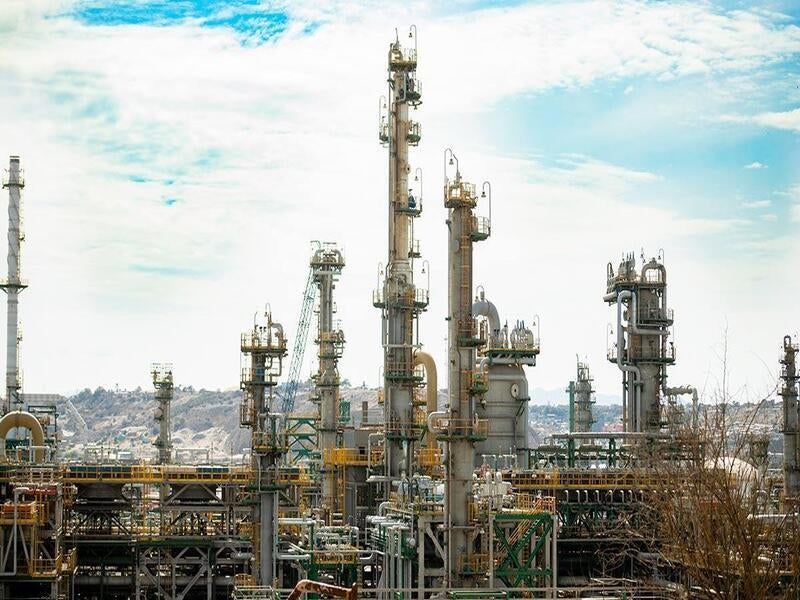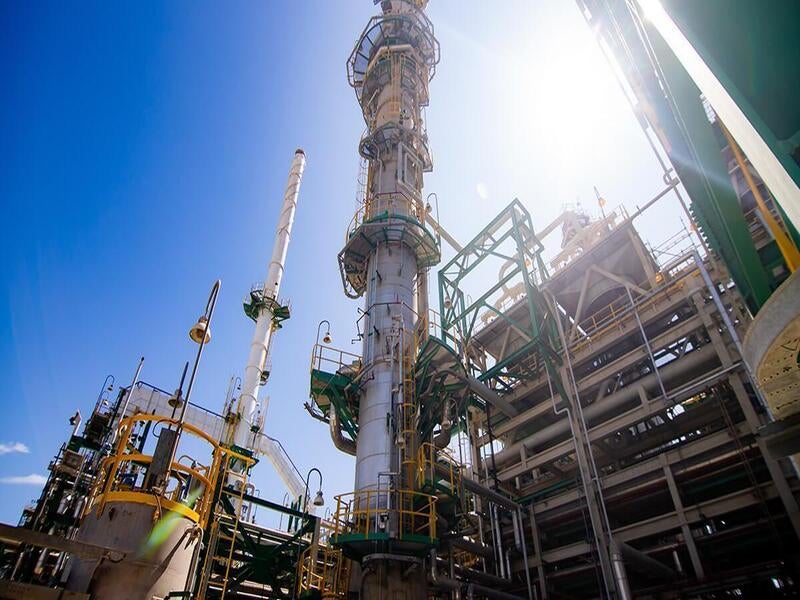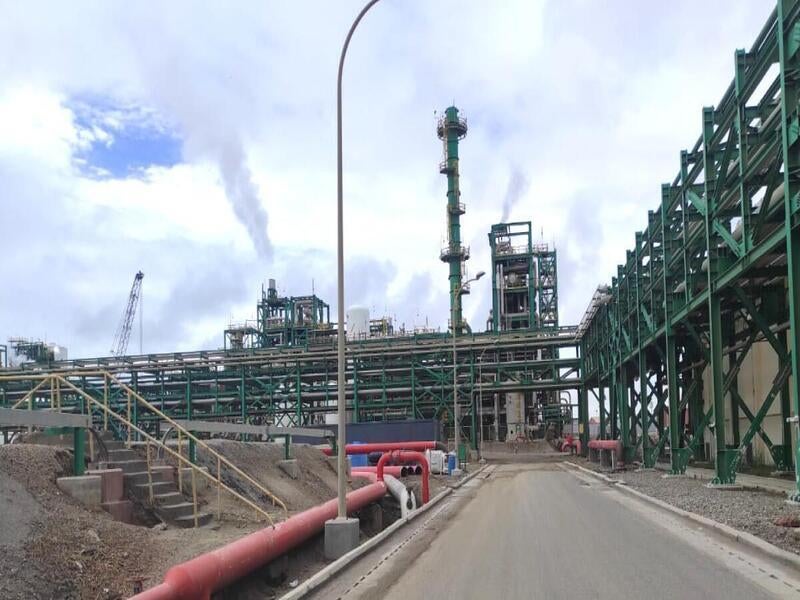New Refinery Talara (NRT) is an under-construction project that involves modernising one of the largest refineries in Peru.
The project is owned by state-owned company Petroperu.
The modernisation of the refinery will enable the refinery to produce diesel and gasoline fuels in compliance with the new Peruvian environmental requirements with a maximum sulphur content of 50 parts per million (ppm) at competitive prices.
Apart from upgrading the refinery’s infrastructure, the project will also increase the refinery’s oil processing capacity from 65,000 barrels per day (bpd) to 95,000bpd. The number of processing units will also increase from three to 16.
The total estimated investment of the project is $5.3bn. It was constructed with company funds.
The last stage of construction of NRT began in April 2021 with auxiliary and process units. The gradual start-up of the refinery began in April 2022.
In January 2023, the naphtha, cracked naphtha and diesel hydrotreatment plants were commissioned. The NRT is expected to become fully operational in 2023.
Talara refinery location details
The old Talara refinery is located in the namesake city in the department of Piura, around 1,185km north of Lima, the capital of Peru.
It is spread across an area of 128.9 hectares.
Talara Refinery history
The Talara Refinery was established in 1917 with a processing capacity of 10,000 barrels per day (bpd).
Four Thermic Cracking Units were installed at the facility in 1926, followed by a Lubricant Distillation Plant three years later and Asphalt Plant in 1938.
The Tubular Still Nº 2 (now the Primary Distillation Unit) started operations in 1954.
In July 1969, Petróleos del Perú (Petroperu) was established. Subsequently, the Catalytic Cracking Complex (CCC) and a Catalytic Cracking Unit (UCC) were installed.
The Liquid Cargo Dock went into operation in 1995, while the crude desaliniser plant was installed in 2003.
The Talara refinery is equipped to produce LPG domestic gas, motor gasoline, solvents, A-1 turbo, diesel, industrial oils and export quality asphalt.
The production is distributed through the terminals located on the Peruvian coast and from there to the local sales plants, from where it reaches the service stations across the country.
In May 2014, Petroperu started the execution of the modernisation project of the Talara Refinery. The modernisation will help the refinery to de-sulphurise fuels; process heavier crudes; reduce residuals; and deliver cleaner fuels.
New Talara Refinery Infrastructure details
The New Refinery Talara project involves a complete transformation the current production scheme of the Talara Refinery by adopting advanced technology, new refining processes, auxiliary services and associated facilities.
It comprises 16 process units and five packages of auxiliary units and complementary services, two liquid loading docks and 21 new storage tanks.
The 16 process units will include DP1: Primary Distillation- which separates crude oil into commercial products such as gasoline, diesel and others; DV3: Vacuum Distillation- which processes DP1 bottoms to extract lighter gasoholes.
Gas Recovery and Gas Recovery 2 units process wet gas and unstable naphtha to deliver LPG and naphtha, and produces combustible gas by recovering LPG from the gases of Primary Distillation and Desulphurisation units respectively.
The Fluidized Catalytic Cracking (FCC) processes heavy hydrocarbons into lighter ones such as LPG, gasoline and diesel.
The Flexicoking unit converts DV3 to waste LPG, gasoline, diesel and heavy flexigas diesel among others.
Other units include TGL: LPG Treatment; HTN: Naphtha Hydrotreating; HTD: Diesel Hydrotreating; HTF: Cracked Naphtha Hydrotreating and RCA: Catalytic Reforming.
The remaining NRT process units are TKT: Turbo Treatment A-1; OX: Soda Treatment; TNS: Solvent Treatment; AM2: Amine regeneration and WS2: Water stripping.
Power supply
In April 2021, electricity generation at the new thermal power plant began following approval from the Ministry of Energy and Mines (MINEM).
The power plant is designed to generate 102.34MW of electricity. It supplies electricity to the new refinery complex as a part of auxiliary units installed to supply steam and electrical energy to the facility’s process units.
The main source of fuel for the thermal power plant will be Flexigas, a product that will come from the Flexicoking Process Unit.
Contractors Involved
In May 2014, Tecnicas Reunidas was awarded the engineering, procurement and construction (EPC) contract for the Talara refinery modernisation project.
The contract scope included the expansion and modification of existing units which includes distillation, catalytic cracking and vacuum distillation, and the construction of new units including diesel hydrotreating, cracked naphtha hydrotreating, flexicoker, naphtha hydrotreating, naphtha catalytic reforming, amine and cogeneration, as well as additional expansions and upgrades.
In May 2015, Flowserve received orders worth approximately $18m to deliver pumping systems for the project.
Cimentaciones Prefabricadas Terratest Perú, a subsidiary of Terratest Group, was contracted for foundation works related to the Talara Refinery project modernisation.
Ulma Construction’s formwork and scaffolding enabled the installation of racks and metal structures to support the crude refinement and processing equipment. Flenco was engaged to supply its auxiliary systems for the Talara project.
In 2016, LUXSOLAR, part of C&E Group, provided its AWL systems suitable for hazardous areas with MIOL-AB beacons. Later in 2019, the company has been selected again for the supply of another AWL system suitable for hazardous areas composed of LIOL-A beacons for newly built chimneys.
In 2016, Sarens was assigned a contract for the heavy lifting and engineered transport associated with the modernisation of the Talara project.
KAEFER KOSTEC was engaged to deliver productivity improvements for thermal insulation, Passive fire protection (PFP), Scaffolding, Surface Protection and Electric Tracing services between 2016 and 2017.
BigLift Shipping was approached by Tecnicas Reunidas in March 2017 for the transport of five columns totalling around 25,000 cubic metres (cbm) from Bilbao in Spain to Talara in Peru. BigLift utilised its heavy load carrier Happy Buccaneer Vessel to execute the task.
WEG supplied two x 62MVA ST41 generators and 2 x 3.125MVA 4.16 / 0.48kV transformers to be used in the desalination process of the Talara refinery.
ACCIONA was contracted to undertake the operation and maintenance of the desalination plant in the NRT.
In March 2022, Honeywell announced that Petroperú implemented Honeywell Forge Workforce Competency solutions to provide realistic training simulations for more efficient operations.
In May 2022, Matheson Global HYCO Peru SRL, a group company of Nippon Sanso Holdings Corporation (NSHD)’s Matheson Tri-Gas signed an agreement with PetroPeru to operate, maintain and supply gaseous hydrogen and nitrogen from the new hydrogen and nitrogen at the Talara refinery.
Doosan Škoda Power was contracted to deliver two steam turbine generators with a total capacity of 110MW for a new power plant.
Jema Energy was contracted to provide Customised UPS AC&DC systems required for the NRT project, while FIBRAIN provided passive converters, fibre optic patch cords, and adapters for the modernisation works at Talara refinery.
JJC Group was associated with the delivery of administrative buildings and facilities, and construction of the Laboratory Building at the refinery.
Specialty vehicles manufacturer REV Group delivered two E-ONE Custom Industrial Pumpers and an E-ONE Custom Tanker to Petroperú in March 2017 as part of the modernisation project.





